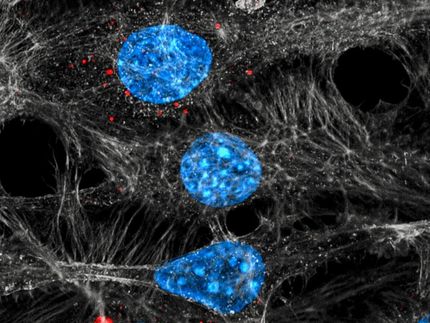Avastin plus commonly used chemotherapies improved progression-free survival in advanced breast cancer
Data from RIBBON 1 study provides efficacy and safety information with different types of chemotherapy
Advertisement
Roche and Genentech provided an overview of results from the Phase III study (RIBBON 1) that showed Avastin® (bevacizumab) plus commonly used chemotherapies, including Xeloda® (capecitabine) and anthracycline-based therapies, increased the time women receiving first-line therapy for advanced HER2-negative breast cancer lived without the disease worsening (progression-free survival or PFS), compared to the chemotherapies alone. No new safety signals for Avastin were observed in the study.
RIBBON 1 comprised two independently-powered study groups that evaluated Avastin with different types of chemotherapies in people with advanced HER2-negative breast cancer:
- Group One: Avastin or placebo plus a taxane (protein-bound paclitaxel or docetaxel) or anthracycline-based chemotherapies (doxorubicin- or epirubicin-based regimens)
- Group Two: Avastin or placebo plus Xeloda
Patients receiving Avastin plus taxane or anthracycline-based chemotherapies (Group One) had a 55 percent improvement in the time they lived without their disease worsening compared to those who received the chemotherapies alone (hazard ratio=0.64; p<0.0001). Patients receiving Avastin plus Xeloda (Group Two) had a 45 percent improvement in the time they lived without their disease worsening compared to those who received the chemotherapy alone (hazard ratio=0.69; p=0.0002).
Avastin was approved for advanced breast cancer in February 2008 under the U.S. Food and Drug Administration's (FDA) accelerated approval program, which allows provisional approval of medicines for cancer or other life-threatening diseases. Avastin, in combination with paclitaxel, is indicated for the treatment of patients who have not received chemotherapy for advanced HER2-negative breast cancer. The effectiveness of Avastin in metastatic breast cancer is based on an improvement in PFS. Avastin is not indicated for patients with breast cancer that has progressed following anthracycline and taxane chemotherapy administered for metastatic disease. Currently, no data are available that demonstrate an improvement in disease-related symptoms or increased survival with Avastin in breast cancer.
A full review of data from the positive RIBBON 1 and AVADO studies is required for the accelerated approval to be converted into a full approval. As a part of the company's commitment to fully evaluate Avastin in breast cancer, Genentech also will submit to the FDA data from three additional randomized trials that are either ongoing or planned.



















































